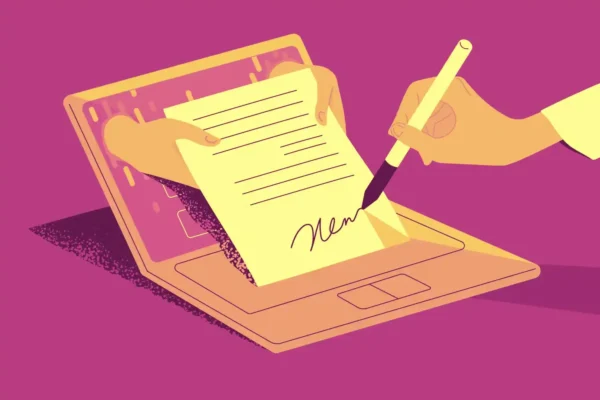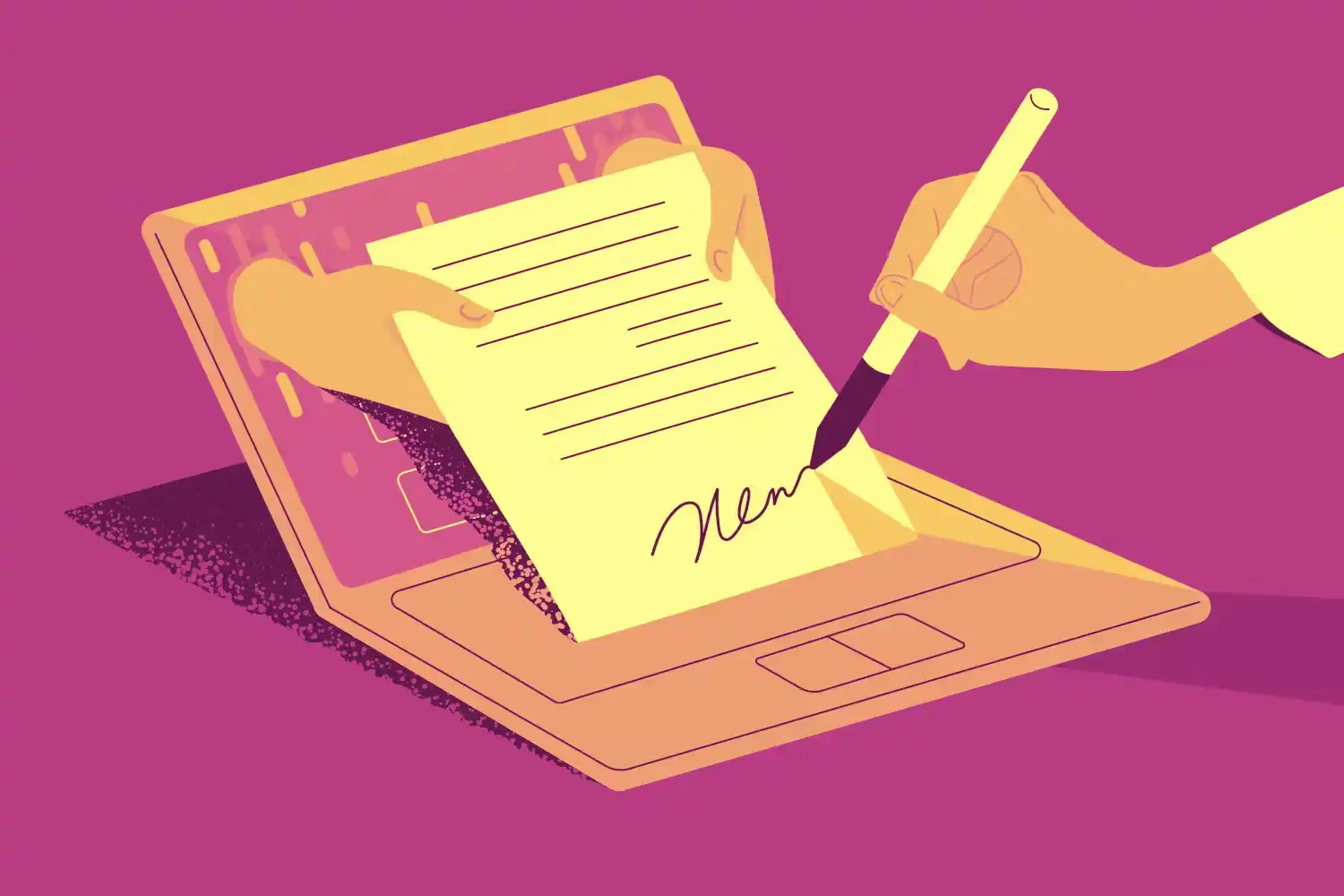
Here’s How to Buy a House as a Freelancer

f you’re a freelancer, you might think that buying a home is just out of reach. Even as interest rates fall, without a set income, it can be hard to show lenders how much you make, making it hard to get approved for a mortgage.
The truth is that buying a home as a full-time freelancer is difficult, but nowhere near impossible. With a little preparation and extra work, you can show lenders that you will be able to repay any money you borrow.
In this article, we’ll do more than tell you how to buy a house as a freelancer. We’ll break down the risks financial institutions carry when lending to freelancers. We’ll also outline the steps you should take to apply for a freelance mortgage and how you can improve your creditworthiness.
Why Freelancing Is A Risk for Lenders
When someone applies for a mortgage, the lending institution will want to document proof of income, credit history, debt level, and more. This is necessary for lenders to assess the risk involved with lending you money accurately. If you’re borrowing too much, have a history of not paying your bills, or are already swamped in debt, a bank may not be able to accept your application. If you are unable to make payments, the bank loses out— and they’re in the business of making money.
As a self-employed individual, you’re probably familiar with the ebb and flow of freelance income. There are times when you’re swamped with work and times when you are actively searching for clients. You’ve likely adjusted your lifestyle and learned to budget your finances to account for the slower times properly. Still, this is not always easy to prove to someone who is lending you money.
Preparing to Apply for a Mortgage
The key to preparing for a mortgage as a freelancer is to get your financial information in order before you apply. Know that the requirements are going to be a little different for you. Having your ducks in a row is key to showing that your business is legitimate and profitable.
Start by organizing and separating your business and personal expenses. This means starting a business bank account if you haven’t already. It will help mortgage lenders see where your money is coming from and where it is going every month.
Documents You’ll Need
Next, you’ll want to gather the following documents:
- At least two years of tax returns.
- Profit and loss statements.
- Bank statements showing the money you have saved.
Other documents that may be used to confirm your income include verification of employment from a tax preparer, a business license, or letters from clients that confirm past work. Specific requirements will vary, so don’t be afraid to communicate with your bank well before starting the application process to figure out what else you may need.
Minimizing Deductions
As a freelancer, you should be keeping track of your business expenses for tax deductions. While this helps you out during tax season, it doesn’t work in your favor when applying for a loan. Why? Deductions to your income may make it look like you’re earning less money than you are. This could be a red flag, so if you’re planning on buying a house, hold off on some deductions for a year or two.
Ways to Improve Your Creditworthiness
Proving your income isn’t the only thing you can do to bolster your mortgage application. You can also convince banks to loan money by showing your creditworthiness in other ways.
Boost Your Credit Score
Having a stellar score can help demonstrate your ability to repay a loan. The three-digit number is an indication of your payment history, the amount you owe to creditors, length of credit history, and more.
The following are some easy things you can do to improve your score and keep it high:
- Check your report for errors. This is a simple way to help you clean out small errors in your credit history. Some statements may contain mistakes that drag your numbers down. By finding and correcting these mistakes, you can add a few points.
- Don’t open new lines of credit: If you’re planning on buying a house soon, limit the number of credit cards or other forms of credit that you acquire. Each time an inquiry is made on your credit report, your score takes a hit.
- Keep credit cards open: It may sound like a good idea to close old and unused credit cards, but hold off. Closing them increases your credit utilization ratio and limits your credit history.
Pay Off Other Debts
Paying off will help keep your debt to income ratio low and increase your credit score. A lender doesn’t want to see that you’re responsible for paying off a load of other debt every month on top of the mortgage.
Keep Your Credit Utilization to a Minimum
It is important not to run high balances on each of your credit cards. Instead, use them for smaller purchases and pay off your balance every month. This will help keep your credit utilization ratio low, which shows lenders that you don’t rely on credit for all of your purchases.
Save for a Larger Down Payment
A lender may be more likely to lend you money if you have a sizeable down payment. This will also lower the amount of money you’ll need from the bank, making the mortgage less risky.
Working with a Freelancer Friendly Bank
One of the best things you can do to improve your mortgage approval chances is to work with a freelancer-friendly financial institution like Amplify Credit Union. It helps when you are dealing with people who understand the way freelancers generate income and have come up with solutions to help them obtain the financing they need. Even if these institutions are unable to provide you with an immediate loan, they can help you identify proactive steps to improve your application prospects.
Conclusion
Unpredictable income doesn’t have to mean getting denied for financing. If you plan ahead of time, take time to improve your creditworthiness, and work with a freelancer-friendly bank, you’ll be on your way to holding new house keys in no time.
Looking for a mortgage lender?
Learn more about Amplify’s mortgage loans, and apply today!